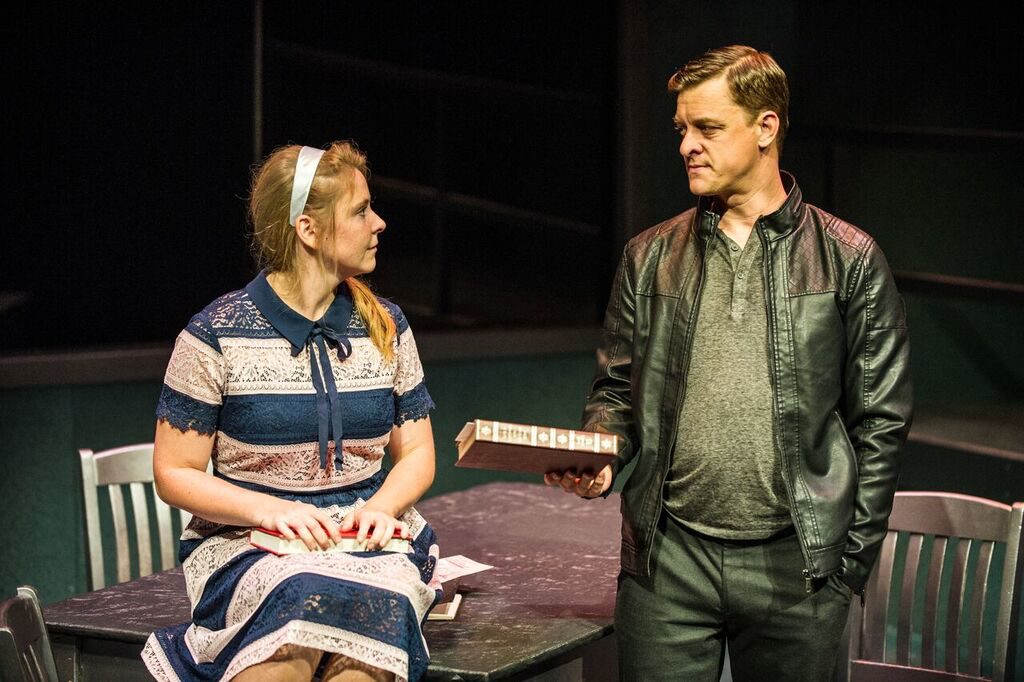The Virgin Trial: blending of historical fact and modern dress is noteworthy

The Virgin Trial By Kate Hennig. GCTC Directed by Eric Coates
Violence, political and religious intrigue and power seizures were the norm through much of the Tudor era. From peasant to prince, marriages were economic unions focused on increasing land holdings and influence.
Rumours swirled around those in power, those who sought power and those about to be imprisoned in the Tower of London for interrogation and torture. Perhaps they were guilty. Perhaps, they had merely chosen the wrong side at the moment.
When a child is at the top, the level of intrigue is bound to escalate. Edward VI was just nine years old when he ascended the throne of England in 1537 — the first English king to be raised as a Protestant — and just 15 when he died in 1553. Throughout his brief reign, he was controlled and manipulated by a regency council led by his uncle the Lord High Protector Edward Seymour.
The Virgin Trial, playwright Kate Hennig’s second play in her Tudor trilogy, begins with interrogation, following a failed assassination plot on the young king. Set in modern times, as was the first of the series, The Last Wife, The Virgin Trial is noteworthy for the use of modern dress and its blending of historical fact with rampant rumours and unanswered questions to leave an air of mystery.
For example, Thomas Seymour (King Edward’s other uncle and the Lord High Protector’s brother) did marry King Henry VIII’s widow, Katherine Parr. He was executed for treason and there were many rumours about his unhealthy relationship with young Princess Elizabeth. As one point, he did send her a letter proposing marriage, which she rejected. (A 2017 television documentary by Suzannah Lipscomb and Dan Jones traced the details of their relationship.)
On the probable fiction/gossip side, there is no evidence that Elizabeth was impregnated by Thomas Seymour or that she had an abortion. The real question, and the main focus of the play is whether Elizabeth was involved in any plots to dispose of her brother or whether she was an innocent trying to protect herself in a dangerous age.
As presented by Hennig, in a fast-paced production directed by Eric Coates, Elizabeth (Bess) appears more manipulator than manipulated, more prepared to sacrifice others than to be sacrificed on the road to power.
As interpreted by Lydia Riding, Bess at first seems an innocent in need of assistance from her older half-sister, Mary (played by Anie Richer, who gives as strong a characterization in the same role as she offered in The Last Wife). She gradually moves along the way from naivety through involvement to control.
Meanwhile, in the strongest performance among a well-chosen cast, Chris Ralph, as Edward Seymour, is congenial but menacing, delivering an excellent contrast to the constant icy ferocity of fellow interrogator, Eleanor (Kristina Watt).
Occasional moments of humour, particularly from Cassel Miles, as Bess’s cofferer (accountant) Parry, offer welcome breaks from the tension and such intentionally anachronistic sequences as water boarding torture.
Primarily, however, the focus is on how a young woman then or now negotiates her way through childhood into adulthood in dangerous times to grab hold of her future.
The Virgin Trial continues at GCTC to September 30.
Director: Eric Coates
Set, props and costumes: Jennifer Goodman
Lighting: Martin Conboy
Sound: Verne Good
Cast:
Thom…………………………….Attila Clemann
Parry……………………………..Cassel Miles
Ted………………………………Chris Ralph
Mary……………………………..Anie Richer
Bess………………………………Lydia Riding
Ashley……………………………Kate Smith
Eleanor…………………………..Kristina Watt